building a CUNY DH Community since 2010
Spotlight: Bret Maney and Mapping New York Literary History
On 11, Oct 2017 | In Spotlight | By Jojo Karlin
Campus: Lehman College
Mapping New York Literary History is a digital public writing project produced by Lehman College English majors enrolled in Bret Maney’s American literature courses. The project engages students in original research and writing about New York locations that have a significant bearing on American literary history. Students document these sites through notes, photographs, videos, and interviews, and carry out library and archival research. The result of their investigations is a series of multimodal essays posted online under their names, initials, or a pseudonym, and organized through a mapping interface powered by Carto and hosted on the CUNY Academic Commons.
The goal of Mapping New York Literary History is fourfold: (1) to foster student engagement with local literary history and American studies; (2) to introduce students to the practice of writing for digital publics; (3) to enhance students’ digital literacies; and (4) to collaborate in the public humanities mission of sharing our disciplinary expertise with the wider community on the web. Through this project, students’ research and writing becomes a permanent contribution to the digital documentation of our city’s and region’s literary history. Lehman English majors have done some truly remarkable work, and we are excited to share it with you.
To begin exploring the Mapping New York Literary History project, click here. Most essays focus on literary sites within the five boroughs, but follow the river north to the Catskills, go west to Weehawken, NJ, or east to Long Island for more literary excavations!
For a scholarly discussion of the digital pedagogy involved in this project, see Bret Maney’s recent Kairos article, “Critics and Cartographers in the Literature Classroom: Using CARTO and WordPress to Build a Digital Public Writing Project.”
Spotlight: Art History Teaching Resources
On 05, Oct 2017 | In Spotlight | By Jojo Karlin
Project type: Digital Pedagogy
Campus: Baruch
Each academic year, AHTR publishes a series of blog posts on the AHTR Weekly, an increasingly popular feature at ArtHistoryTeachingResources.org. While these short essays primarily target art historians and museum educators, instructors in other disciplines now look to the Weekly for information about innovative pedagogies, open educational resources, and technology-enhanced teaching. Among topics slated for this year are “What’s Your Sutori? Interactive Study Guides and Active Note-Taking,” “Kimono Wednesdays,” “Bomb the Church,” and other effective Reacting to the Past (RTTP) games,” and “3D Printing.”
Some contributors have developed their Weekly posts into peer-reviewed publications for Art History Pedagogy and Practice, AHTR’s academic e-journal on scholarship of teaching and learning. At conferences, AHTR provides faculty opportunities for professional development and collaborative exchange. In October, AHTR will host a session “Pedagogically Sound Approaches for Hybrid and Online Learning,” at the Southeastern College Art Association (SECAC), and for the second year in a row, AHTR organized a round of lightning talks on teaching and learning for the College Art Association (CAA). These presentations, addressing the “State of the Art (History): Re Examining the Exam,” along with proceedings from our SECAC session will be shared and archived through reflection posts on the AHTR Weekly. AHTR is also excited to partner with CAA’s Education Committee this year on a one-day “boot camp” for faculty interested in conducting Scholarship of Teaching and Learning in Art History, and is planning a special issue of Art History Pedagogy and Practice focused on projects developing from this event.
Spotlight: Matthew Knip and The Philip C. Van Buskirk Archive
On 02, Oct 2017 | In Spotlight | By Jojo Karlin
Project: Philip C. Van Buskirk Archive
Project type: Digital Archives, Digital Publishing
The Philip C. Van Buskirk Archive employs a small group of CUNY students to digitize and make freely available the first seven years of the unpublished journals of Philip C. Van Buskirk. The nearly-completed archive is free and publicly available for reading and searching.
Born into the upper class, educated and literate—the son of a Maryland Secretary of State—Van Buskirk “fell” into the working-class, largely illiterate, maritime culture after his father’s suicide. Beginning in 1851 and running for fifty years, he kept an extensive diary of the intimate details of his life and the lives of his fellow sailors.
The resulting journals provide a unique window into aspects of this working-class world that have proven difficult for scholars to access because they were almost never written down. While the journals present his perspective, they also allow access to voices he discovered in working-class spaces, perspectives that were seldom allowed within written discourse of the time. The journals have the capability to reshape assumptions at the heart of history, art, literary, and cultural criticism.
Spotlight: Jeff Binder and the Distance Machine
On 28, Sep 2017 | In Spotlight | By Jojo Karlin
Creator: Jeffrey M. Binder
Project: The Distance Machine
Discipline: English
Campus: GC & Queens
Follow: @JeffMBinder
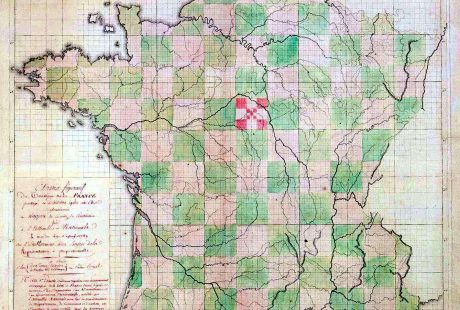
a “geometrical” approach to defining the administrative divisions of France, to which Burke took exception.
The Distance Machine is a new way of visualizing the linguistic changes that we have to grapple with while reading texts from the past. It uses a statistical model to determine when words either became common or ceased to be common in several large collections of books, including Google’s Ngrams data and the publicly available part of the Early English Books Online collection. This gives an approximate sense of when archaic words like thou cease to appear in these collections and when distinctively modern words—like computer—come into common use. Using this information, it shows you (right in your web browser) which words in a text might have stood out as unusual, novel, or specialized to readers encountering it at a given point in the past.
Last year, a paper on this project, “‘The General Practice of the Nation’: Walt Whitman, Language, and Computerized Search in the Nineteenth-Century Archive,” appeared in the journal American Literature. Since then, I used the Distance Machine in a study of representations of land in eighteenth-century America and France, which I presented at the Northeast MLA conference. In the NEMLA paper, I argue that the word location, which appears at several points in Thomas Jefferson’s writings, was politically charged in the eighteenth century, indicating a way of thinking about land that defines places by projecting a Cartesian grid onto the landscape—a practice that, Edmund Burke argued, was like treating one’s own country as a country of conquest. The example of the word location reveals a way in which the new linguistic forms introduced by the Enlightenment have now become so familiar that they are almost invisible to contemporary readers.
Paying attention to language change using tools like the Distance Machine, I suggest, can help us recover some of the lost sense of novelty that texts from the past once had. Since the linguistic knowledge with which we in the twenty-first century read texts from past periods is, in part, a product of the historical processes that were at work in those periods, there is a danger that we tacitly give preference to the sides of political debates that won out. To resist this possibility, it is necessary to become a little less confident in our ability to understand the language of the past.
New Spotlight Feature
On 25, Sep 2017 | In Events of Interest, Spotlight | By Jojo Karlin
Dear CUNY DHI community!
This fall we are excited to launch CUNY DHI Spotlight, a new feature on the blog to highlight ongoing efforts of community members! Consistently impressed by the vibrant activity on the CUNY DHI group forum, we wish to showcase the amazing digital work happening around CUNY for a broader public. We will open with updates on projects seen last fall at the November lightning rounds.
Please contact GCDI Digital Fellow Jojo Karlin if you are interested in presenting a snapshot of an ongoing project (an image, slide or screenshot, and 250-500 word write-up of the project).
Stay tuned for the forthcoming call for presenters for CUNY DHI Lightning Talks, November 13!
Earth Day Wikipedia Edit-a-thon (April 27)
On 26, Apr 2017 | In Events of Interest | By Javier Otero Peña
Event: Earth Day Wikipedia Edit-a-thon
When: Thursday, April 27th, 11AM – 2 PM
Where: Science Center (The Graduate Center, CUNY, 4th floor)
Who: Open to GC community and the public
Participation is free, but an RSVP is appreciated.
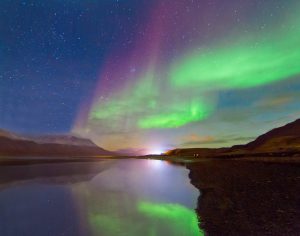
The GC Digital Initiatives is hosting a Wikipedia Edit-a-thon to celebrate Earth Day and to improve the quality of open access, free resources about environmental sciences and humanities.
Earth Day is celebrated on April 22nd and people from all over the world are launching campaigns and promoting awareness about critical environmental issues. Our Wikipedia Edit-a-thon is designed to help create and improve Wikipedia’s environmental sciences and humanities content. As the largest and most popular general reference work on Internet, Wikipedia provides many people with their first contact with scientific information.
During the Edit-a-thon, you will learn how to set up an account to edit content, learn how to create citations, and either begin connecting existing content to reliable sources or adding new content supported by citations.
No previous experience is required. If you are interested in attending, please RSVP here.
If you need accessibility accommodation to attend, contact us at cuny.is/contactus.
Related links:
Earth Day Edit-a-thon page at Wikipedia
PHOTO: 2017 CREATIVE COMMONS, BY JUNAIDRAO.
Doc-a-thon for better docs!
On 27, Feb 2017 | In Events of Interest | By Javier Otero Peña
Doc-a-thon
March 6th, 5:00-10:00 PM
Room 3317
The Digital Fellows, part of the Graduate Center Digital Initiatives at The Graduate Center, CUNY, will be hosting a Doc-a-thon to generate better docs!
When learning a new software tool, programming language or library, we all go straight to the tutorials and other documentation. As the first point of entry for almost everyone, documentation is an often overlooked but critical part of any software project, so we’re providing space and resources to contribute. Participants of all skill-levels are encouraged to join.
We’ll provide you with an introduction to the projects, a discussion of good documentation practices, and help setting up your development environment. You can work on your own personal project or help out on a participating project, such as DH Box, Omeka, Matplotlib, Pandas, and Clawpack.
The first day (Monday March 6) will be focused on tutorials and getting people started. We will then have support throughout the week at the GC Digital Lab on Room 7414, via our GC Digital Fellows office hours (Tuesday 2:00pm – 4:00pm) and the Python User’s Group (Wednesday 12:00pm – 2:00pm).
If you are interested in participating, please RSVP here.
For questions or accessibility accommodations, write us to gc.digitalfellows@gmail.com.
Photo by Mike Ashton (2013). Creative Commons License.
NYCDH Week 2017: GC Events + Workshops
On 27, Jan 2017 | In Uncategorized | By Mary Catherine Kinniburgh
The GC and NYCDH Week 2017
The Graduate Center is excited to host one of New York City’s largest digital humanities events of the year: the inimitable NYCDH Week! Hosted at institutions across New York City from February 6th to February 10th, NYCDH Week features workshops, events, and meet-up opportunities for people interested in digital work.
The GC is excited to host the week’s kick-off gathering on February 6th, which includes a day of project presentations, roundtables, and a keynote by our very own Dr. Stephen Brier, who is receiving the inaugural NYCDH Award for his contributions to the digital humanities community.
In addition, we’ll be hosting workshops at The Graduate Center all week, and have posted the events specifically at our institution below. We invite you to register in advance to ensure your spot, and to check out the full lineup (over 30!!!) of city-wide workshops at the NYCDH Week website.
NYCDH Week Workshops at the GC
“Machine Learning: A Primer”
February 8th, 10:00-12:00pm
Room C196.05
taught by Achim Koh
Description:
In recent years we have seen words related to recent developments in computer science and technology, like machine learning, artificial intelligence or neural networks, be used increasingly in diverse fields of research and of the society in general. This workshop will survey basic concepts of machine learning. No specific background is expected. The goal is to provide some vocabulary with which one can get a sense of what these computational methods are about. In addition, we will also survey existing machine learning-related resources that one can explore to learn further; the resources will address technical understanding as well as critical thinking about the many implications of the technology.
Register: http://dhweek.nycdh.org/event/machine-learning-a-primer/
“Physical Computing 101 with Arduino”
February 8th, 6:30-8:30pm
Room 9206
taught by Mary Catherine Kinniburgh
Description:
Join us for this absolutely no-experience necessary workshop to introduce you to the basics of using Arduino, an open-source hardware and software prototyping platform, so you can begin to consider and develop your own projects. In this course, we’ll use critical experimentation as a way to think about interactivity in our computational world.
Register: http://dhweek.nycdh.org/event/physical-computing-101-with-arduino/
“Introduction to Information Security”
February 9th, 6:30-8:30pm
Room C201
taught by Patrick Smyth
Description:
This workshop will cover issues of data security. What does it mean for data to be “secure”? What is data encryption? How might you begin to protect yourself from data surveillance, reconsider data storage, and think about personal privacy in an age of internet research? This workshop is designed for someone who has never really thought of data security as a humanities scholar but who might want to consider where to begin.
Register: http://dhweek.nycdh.org/event/introduction-to-information-security/
“Social Network Analysis for Humanities”
February 10th, 10:00-12:00pm
Room C196.05
taught by Alexander Nakhimovsky
Description:
Present the basics of Social Network Analysis (SNA): graphs, metrics, filtering, grouping; introduce NodeXL, Excel-based tool for SNA; do a couple of examples: (characters in Les Miserables; wordnet).
Register: http://dhweek.nycdh.org/event/social-network-analysis-for-humanities/
….and we have to add a GC Digital Fellow alumna round! Our very own Michelle McSweeney will be teaching two mapping workshops up at Columbia University’s Studio@Butler. Tell her we say hello!
“Introduction to Mapping with QGIS”
February 7th, 3:00-5:00pm
Studio@Butler, Columbia University
taught by Michelle McSweeney and Dare Brawley
Register: http://dhweek.nycdh.org/event/introduction-to-mapping-with-qgis/
“Making Maps into Webmaps with Leaflet.js”
February 8th, 1:00-3:00pm
Studio@Butler, Columbia University
taught by Michelle McSweeney and Dare Brawley
Register: http://dhweek.nycdh.org/event/making-maps-into-webmaps-with-leaflet-js/
Joshua Miele talk: “Digital Accessibility and the Making of a Meta Maker Movement”
On 03, Oct 2016 | In Events of Interest | By Javier Otero Peña
GC Digital Initiatives
Speaker Event, Fall 2016
October 20th, 6:30-8:00pm
Room C198, The Graduate Center, CUNY
Dr. Joshua Miele
“Digital Accessibility and the Making of a Meta Maker Movement”
GC Digital Initiatives and The Futures Initiative are excited to welcome Dr. Joshua Miele to The Graduate Center, CUNY, to speak on the topic of digital accessibility and maker culture. Dr. Miele is the Associate Director of Technology Research and Development, at the Rehabilitation Engineering Research Center on Low Vision and Blindness, and has spearheaded multiple apps, platforms, and resources that promote digital accessibility–including the Blind Arduino Project, overTHERE, YouDescribe, and many more. In his talk, he will discuss the philosophy that informs his approach to maker culture, and consider the essential role of digital accessibility in this formulation.
This event is free and open to the public, and we kindly request you RSVP in advance clicking here.
If you require accessibility accommodation, contact us at gc.digitalfellows@gmail.com, or call Lisa Rhody at (212) 817 8490.
We look forward to seeing you there!
—
Call for Lightning Talks: CUNY DHI 2016
On 03, Oct 2016 | In Uncategorized | By Mary Catherine Kinniburgh
Call for Lightning Talk Presentations
“CUNY DHI 2016: Building a Digital Humanities Community at the City University of New York.”
Monday, November 7th, 6:00-8:30pm
Ninth Floor Breakout Rooms, Rooms 9204/9205/9206/9207
The Graduate Center, CUNY
Proposals will be accepted on a rolling basis until October 21st (or until all presentation slots are filled).
After last year’s success, CUNY DHI and GC Digital Initiatives invite participation at the second annual “CUNY DHI: Building a Digital Humanities Community at the City University of New York.”
This event features a series of
- lightning talks on digital projects from across the CUNY campuses,
- Presentations from graduate student winners of Provost’s Digital Innovation Grants,
- a reception to follow for discussion and networking.
How to get involved
CUNY faculty, graduate students, and staff are invited to submit proposals for lightning talks of no more than 5 minutes (with no more than 3 slides) on projects that highlight ongoing, current, and recent work in the digital humanities. We welcome all disciplines and even encourage presentations that include undergraduate participation. Groups may present collaboratively or individually.
Please check out our recap from last year for an overview of the types of projects and initiatives that have been featured previously: cuny.is/cunydhi2015.
To submit your lightning talk for consideration, please fill out this brief form to share a little more information with us (no abstract required!): https://goo.gl/j71U1B. Once you have submitted the form, we will contact the email address provided with further details.
Last year, we had eight of the CUNY campuses represented across presenters, and this year we are hoping for even more! For specific questions, please do not hesitate to contact Lisa Rhody, Deputy Director of Digital Initiatives at lrhody@gc.cuny.edu or Javier Otero Pena, GC Digital Fellow at joteropena@gradcenter.cuny.edu.
Thank you for your interest in participating, and we look forward to seeing you there!
This event is sponsored by CUNY DHI and GC Digital Initiatives.



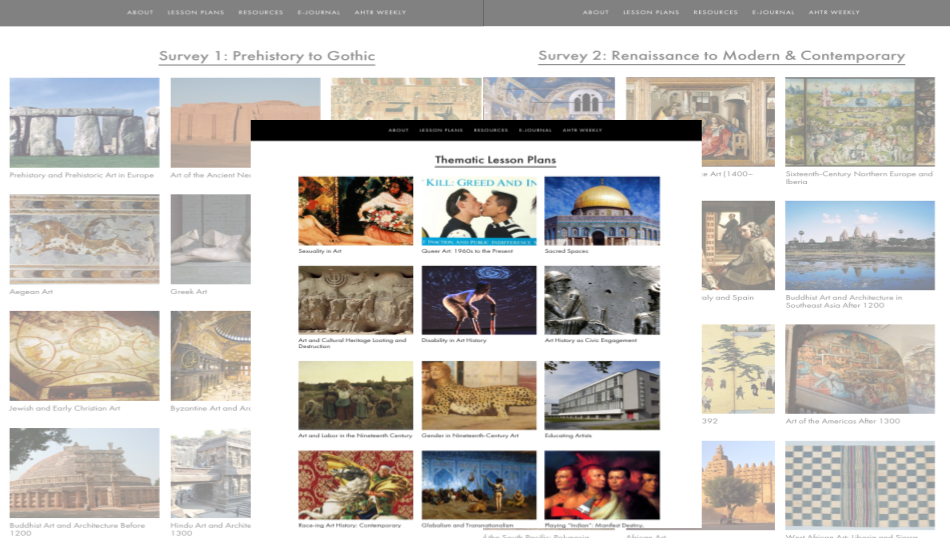
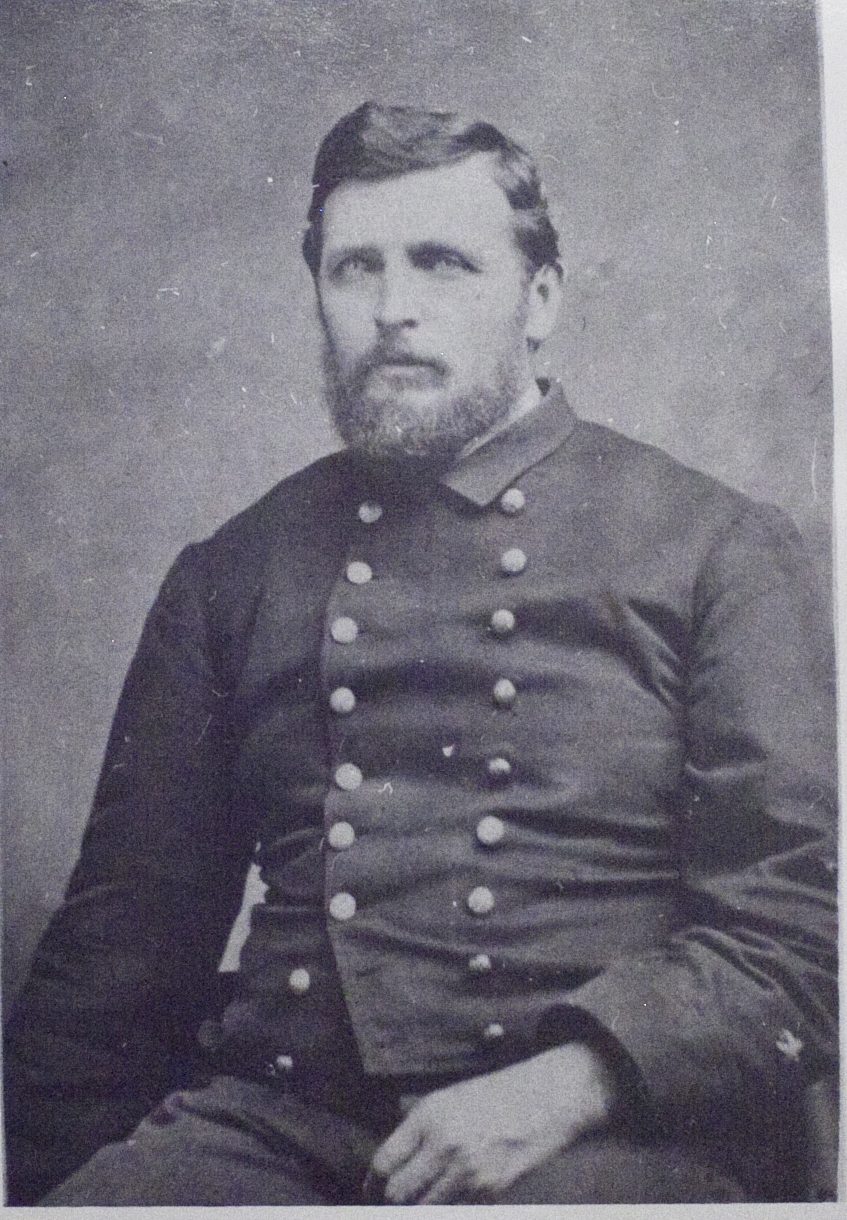
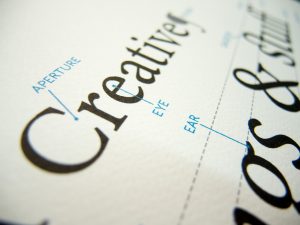
 Welcome to the blog of the CUNY DHI, an effort to build momentum and community around Digital Humanities practitioners at CUNY. We hope you'll join us at our upcoming events and that you'll follow this blog to hear about the latest news in the field.
Welcome to the blog of the CUNY DHI, an effort to build momentum and community around Digital Humanities practitioners at CUNY. We hope you'll join us at our upcoming events and that you'll follow this blog to hear about the latest news in the field.



Recent Comments